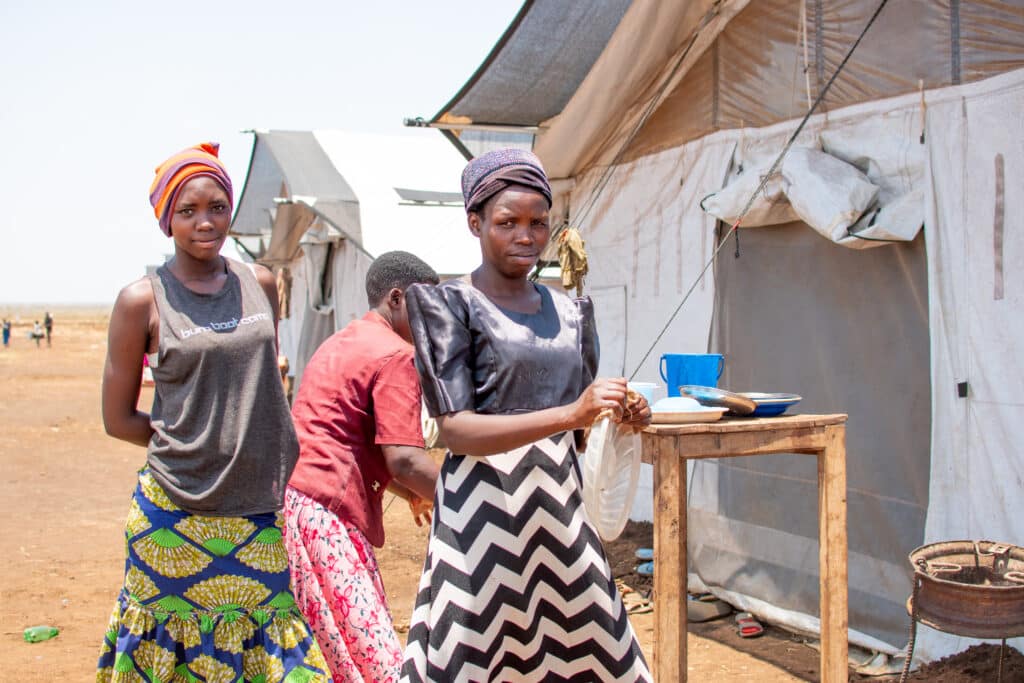Mental Health in Catastrophes and Emergencies
Whether coping with droughts and outbreaks, or reeling from the aftermath of floods and extreme weather, millions of people across Africa confront not only physical survival, but deep trauma and psychological burdens, often at times when services are the hardest to reach. StrongMinds provides rapid emergency response and long-term mental health support to communities affected by climate catastrophes and outbreaks.
Floods & Droughts
StrongMinds has worked with the Ugandan Ministry of Health and the Office of the Prime Minister in Mbale. A succession of catastrophic floods and landslides has left a trail of ruin and destruction, with tens of thousands displaced. For many, the trauma of losing everything was compounded by depression and hopelessness. We responded by providing psychological first aid in the immediate aftermath and ongoing mental health support for survivors to share their experiences and begin to heal together.

For Susan, losing her home and her livelihood plunged her into isolation and devastation. Through group therapy, she was able to connect with other people who experienced similar losses and understand what she was going through. “Losing everything I had was a traumatic experience, but with the help of the StrongMinds support group sessions, I was able to overcome depression and find ways to rebuild my life.”
In Zambia, severe droughts have caused widespread crop failures and energy shortages, plunging families into food insecurity and deep financial stress. These cascading losses have fueled depression across rural communities. We have been on the ground, equipping clients with the tools to manage their distress and strengthen resilience in the face of an uncertain future.
Infectious Disease Outbreaks
StrongMinds supports communities facing the fear and uncertainty of disease outbreaks such as Ebola, Mpox, and cholera, as well as ongoing challenges like tuberculosis. Working alongside health authorities and other NGOs, we lead awareness campaigns that strengthen psychological resilience and help people stay connected in times of crisis. We also provide continued support to families coping with the stigma of infectious disease within their homes—stigma that too often leads to painful isolation and deep emotional distress.
Our work cannot erase the devastation of floods, droughts, or epidemics, but it ensures people are not left to suffer in silence. With immediate psychological support and lasting coping skills, communities gain the resilience to endure and rebuild. As Joseph, who lost his wife and child in the Ugandan landslide, shared: “Some days are good, some days are harder. But I know life goes on, and I know how to move forward.”
In humanitarian responses, mental health is too often overlooked, even though crises magnify depression, grief, and trauma, and we believe it must be treated as an essential part of every emergency response.
